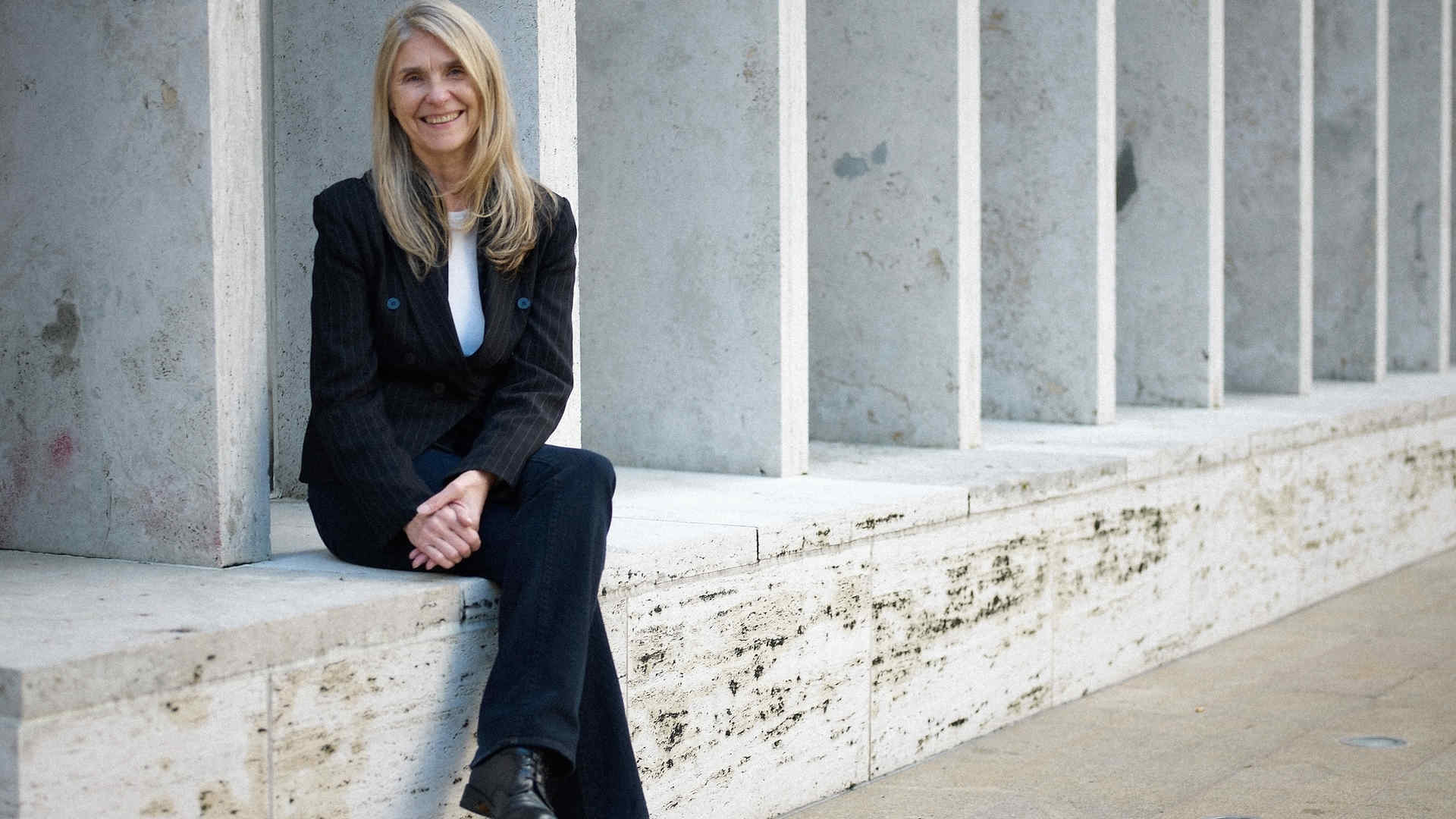
Chair, Liberal Arts
One of Joseph W. Polisi’s hallmark contributions to Juilliard during his 34-year tenure as president has been substantially expanding and enhancing the school’s academic profile—and specifically reorganizing what had been the Academic Department into Liberal Arts. Jo Sarzotti joined the faculty the same year Polisi did and has been the Liberal Arts chair since 2011. The Southern California native got her bachelor’s in English from UC-Berkeley before earning a master’s at Carnegie-Mellon and a PhD, in English and Comparative Literature, from Columbia. This year she’s teaching three core curriculum classes, Ethics, Conscience and the Good Life; Society, Politics and Culture; Art and Aesthetics; and one elective, Noonday Demon: Depression in Literature.
How has Liberal Arts changed?
When Joseph became president he hired new faculty, made the positions full-time, initiated attendance and other requirements, and instigated a core curriculum based on Columbia’s, which reflected his artist as citizen theme. What is different now is mainly the size of the department: 11 full-time faculty, twice the original number, and the general level of academic professionalism. Other beneficial changes were the creation of the Writing and Communication Center in 2009 and hiring an English as a Second Language specialist in 2013. The biggest change I have seen, however, is in the attitude of students. Initially, their general feeling was that our classes were unnecessary to their professional performance goals. Now most understand that a performing artist needs broad education to be a whole individual with an active intellect and imagination and that the communication skills emphasized in our coursework are necessary throughout life.
So what would you tell the doubters about the value of taking liberal arts courses?
Our courses encourage critical thinking and writing, which these days is essential to making one’s way through the thicket of polarized political narratives, fake news, “dog whistles,” and flat-out lies that have invaded our public discourse. So that would be the short answer, as well as that reading the formative texts of world culture, especially our own, to have a sense of the ideological frames we inhabit is a core responsibility for an informed citizen, which we believe artists should be. To serve these ends, and others, Liberal Arts courses offer immersion in required skills and thematic core courses and in a variety of interdisciplinary electives.
Do you have a background in dance, drama, or music?
The short answer is No, but I did take dance classes—Graham technique—throughout college and my 20s before switching to gym workouts. My artistic pursuit is poetry; I had a book, Mother Desert, published in 2012 by Graywolf Press, and poems in recent editions of the journals Ploughshares and Southwest Review. I have a second book, Waiting for Achilles, that’s being published June 2019.
"Initially, the students' general feeling was that Liberal Arts classes were unnecessary to their professional performance goals. Now most understand that a performing artist needs broad education to be a whole individual and that the skills emphasized in our coursework are necessary throughout life."
What are you reading/watching/listening to/following?
I just finished the last volume of Elena Ferrante’s Neapolitan novels, which I recommend for the insights about women entering professional life, friendship, political history of the mid-century, and much more. This summer I read the fiction of Nella Larsen, a Harlem Renaissance figure who tackles sensitive cultural themes in a brilliant style. Also Jhumpa Lahiri’s The Namesake, about immigrant experience; and Sartre’s The Reprieve, about the onset of WWII in Europe, which is grimly resonant with some of today’s public rhetoric. I’m also reading the contemporary American poet Ada Limón, the 20th-century German poet Ernst Meister, and for fun, The Melancholy of Resistance by the Hungarian writer László Krasznahorkai.
If you suddenly had a few hours of free time, how would you spend it?
Depending on how much time and how surprised I am by it, I might go to the gym for a spinning class or, alternately, bake something or possibly read, but during the school year, reading is work and I try to balance it with physical activities. My main leisure activity is horseback riding, and, more recently, gardening.
What do you always get asked?
Where I ride—the answer is Jamaica Bay, on the way to JFK Airport. There is a beach and trails through woods that are adjacent to the stable.
What do you wish you’d get asked?
These days, anything about politics so that I can vent and let off steam.
If you weren’t in the career you are in, what would you be doing?
Sometimes I wish I were a novelist, telling stories, creating characters, but I’m not sure I really have that talent. I love teaching; the best hours in a given week can be those I spent in the classroom.